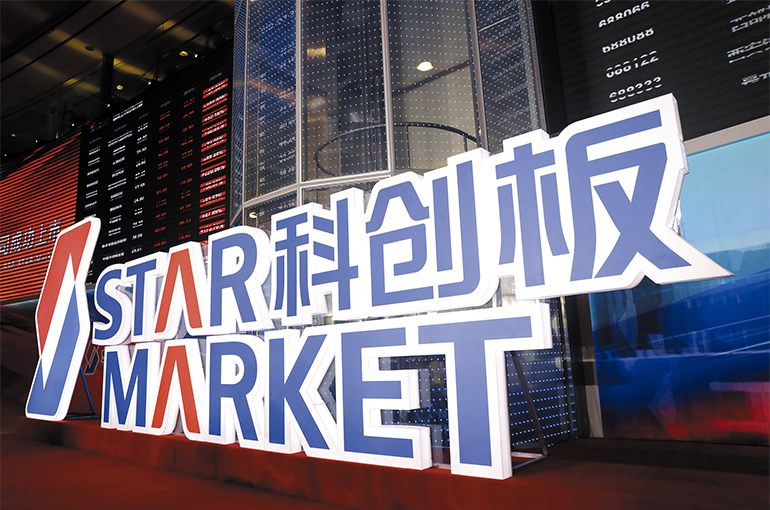 Shanghai’s Star Market Turns Five, Having Helped 570 Firms Raise USD125.5 Billion
Shanghai’s Star Market Turns Five, Having Helped 570 Firms Raise USD125.5 Billion(Yicai) June 14 -- Shanghai's Star Market celebrated its fifth anniversary yesterday, with some 573 companies having joined the Nasdaq-like board since it was set up to help Chinese technology and science-based businesses raise capital.
These firms had raised a total of CNY910.8 billion (USD125.5 billion) through their initial public offerings and had a combined market value of more than CNY5 trillion (USD689.2 billion) as of June 12. Between them, they spent CNY156.1 billion on research and development last year, a 14 percent increase on 2022.
Over the past five years, the Science and Technology Innovation Board -- to give it its full name -- has reformed its rules on issuance, listing, trading, mergers and acquisitions, and delisting to meet the varied financing needs of different types of businesses at different stages of development. It has also explored novel approaches to refinancing, stock options, capital reduction, and information disclosure.
The market is increasingly attracting more innovative firms, supporting the hard technology industry chain, said Peng Wenyu, chief analyst of new stock strategy at Shenwan Hongyuan Securities. It has become a key window for China's technological innovation and industrial upgrading, he added.
Hard tech refers to key inventions that have a higher technological barrier and are hard to replicate such as artificial intelligence, biotech, and new materials.
The Star Market will increasingly emphasize its hard tech characteristics in the future, differentiate its development from other boards, and serve as a testbed for capital market reforms, said Tian Xuan, head of the National Institute of Financial Research at Tsinghua University.
The board has shown its power to attract and nurture firms in sci-tech innovation and the real economy, according to Eugene Qian, president of UBS Group China. Going forward, it needs to pay more attention to identifying the technological level of applicants while upping its tolerance of those that are still in the early stages of growth, including those not yet profitable, he added.
Editor: Emmi Laine